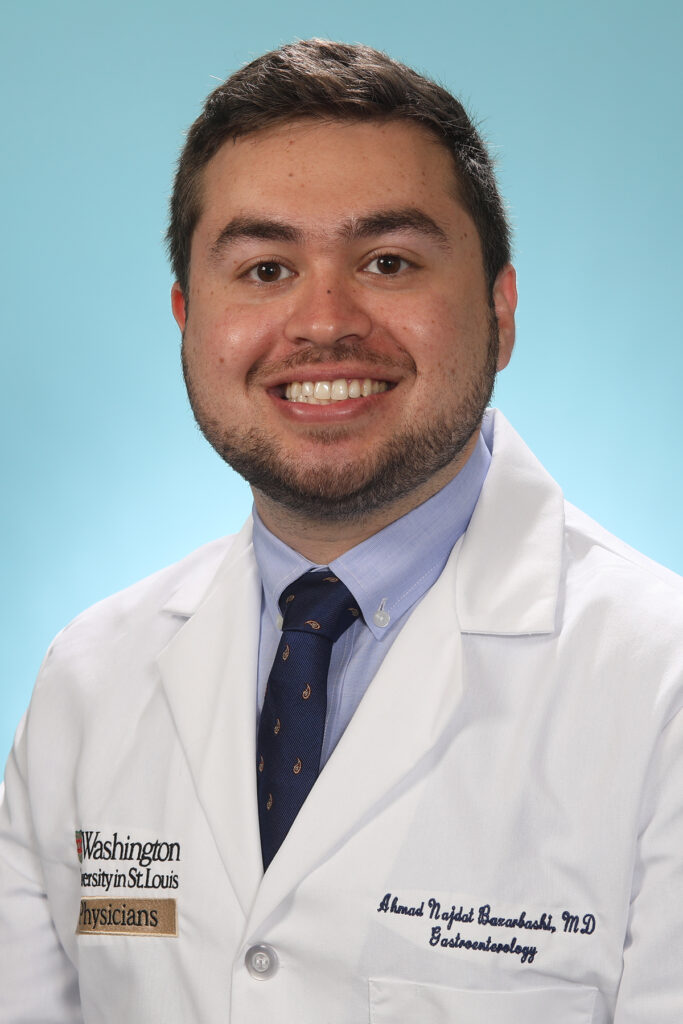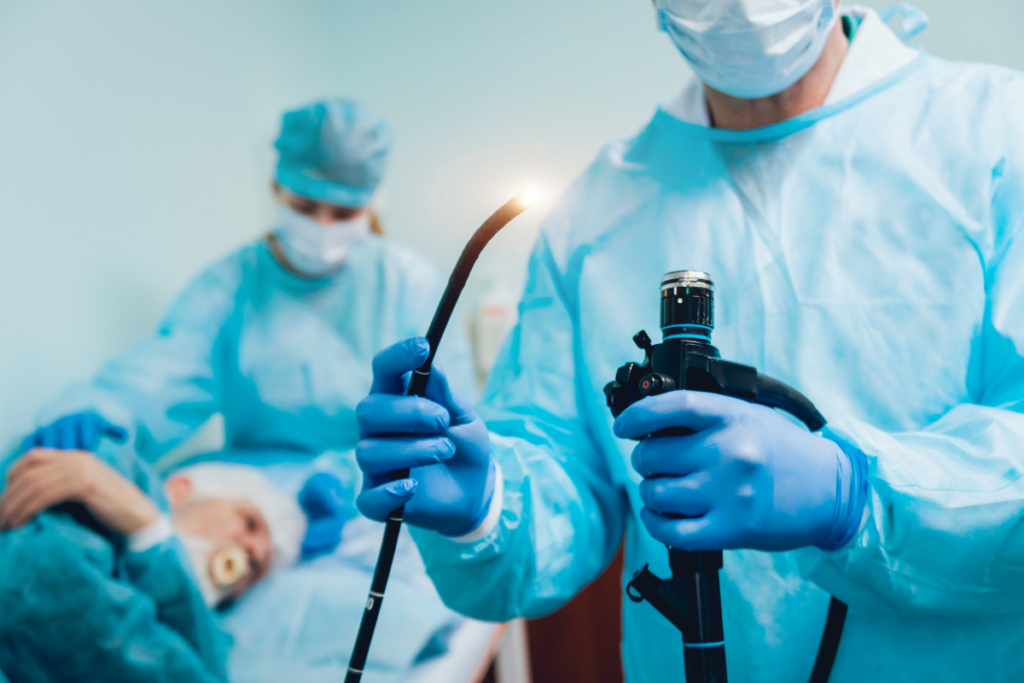Cancerous lesions, pre-cancerous lesions, placing stents for obstructions and managing patients with biliary tree and pancreatic disease are all part of a day’s work for Dr. Ahmad Najdat Bazarbashi.
Bazarbashi is one of the faculty in the WashU Gastroenterology Division, specifically in the section of Biliary & Interventional-Endoscopy and is director of the Third Space Endoscopy Program.
Third space endoscopy, is often referred to as submucosal endoscopy, entails tunneling through the various linings of the digestive system in order to remove lesions that are deeper or treat conditions that require us to go deeper (for example the muscle layer) into the digestive system lining. The gastrointestinal (GI) tract can be accessed by tunneling in the submucosal space or beyond it without compromising the integrity of the overlying mucosa. Additional examples of third space endoscopy include treatment of esophageal Zenker diverticulum and G-POEM for the treatment of gastroparesis which are offered by the WashU division.

Whenever you are venturing into the deeper layers of the digestive system, that’s what “third space” Endoscopy is. It’s removing lesions and treating conditions that are beyond the first layer of the digestive systems or what we call the mucosa.
Ahmad Najdat Bazarbashi, MD
Assistant Professor of Medicine
Much of the practice involves managing patients who have various lesions of the gastric-intestinal system. These are often patients who have polyps that may be pre-cancerous or sometimes superficial cancer. These patients can have endoscopic resection of these lesions that can be curative and save them from major surgery (as long as these lesions have not spread deeper into the layers of the digestive system). Common examples would be early colon cancer or gastric cancer.
Many gastroenterologists find polyps that they cannot remove or are uncomfortable removing and these often are sent to the Advanced Endoscopic group to remove. Dr. Vladimir Kushnir and Dr. Bazarbashi offer a procedure known as Endoscopic Submucosal Dissection (ESD) which is an endoscopic procedure that is somewhat less invasive to remove cancerous and precancerous lesions from various parts of the digestive system such as the colon or the upper GI tract. This involves dissecting these lesions and removing them all in one large piece. Bazarbashi shares “this is a highly specialized endoscopic procedure that we’re very fortunate to be able to offer our patients here at WashU.”
Other responsibilities they manage in the endoscopic realm include endoscopic management of patients with esophageal disorders…particularly patients who have the condition called Achalasia which causes difficulty swallowing. These patients historically would have minimally invasive surgery to treat this however this is not often treated with a procedure called per oral endoscopic myotomy, or POEM for short. “We now work with our colleagues in surgery to treat achalasia endoscopically through the mouth by accessing the esophagus, tunneling between the layers of the esophagus, until we get to the muscle that is responsible for the increased tone and failure of relaxation. We then are able to cut this muscle to allow for this sphincter to relax, and thereby improve their swallowing.”
Endoscopy is beneficial for patients as it’s often organ sparing and can avoid major surgery. Where otherwise they may need part of the colon removed and need a colostomy bag of some kind. “It’s innovative, new, and a chronically evolving field and it’s good to offer a patients over a more invasive option.”
Because all of these procedures are highly specialized and require complex medical decision making, the third space endoscopy team at WashU works closely with divisions and colleagues in various surgical subspecialties, including minimally invasive surgery and colorectal surgery.
Dr. Bazarbashi shares their team does pursue research in this as well and collaborates with other center to look at their own data, and that they’re lucky that we do this clinically and have a nice fertile ground to get research done as well. “We are often involved in multi-center retrospective and prospective studies with carious academic institutes, nationally and internationally.”
“We’re just literally turning the page…there are so many places within the digestive systems an endoscope can get to. There’s so many things you can do to treat and to diagnose. The offerings are innumerable. And we’re very lucky that this is the field we’re in.“
Dr. Ahmad Najdat Bazarbashi
What’s even better is often times for these less invasive procedure, patients go in for their procedure and they’re in and out in less than a few hours helping with faster patient recovery. In our area, there’s only a handful of academic centers that offer Third Space Endoscopy. We’re pleased to be able to offer this to the WashU community. WashU Interventional Endoscopy Physician Team:
